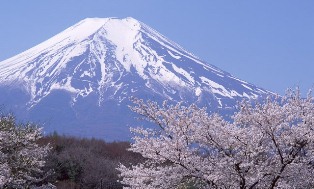The first Greek participant on the JET Programme is reporting from Japan. By Vasiliki Papaioannou.
Merry Christmas and a Happy New Year from the land of the Rising Sun!
My name is Vasiliki Papaioannou, and I came to Shizuoka, Japan, in August 2003, in order to work as an Assistant Language Teacher (ALT) in the frame of the JET programme, which promotes internationalization. In theory, an ALT's role on the JET Programme is to enhance the foreign language education in Japan, become a cultural ambassador for his home country, and become an "expert" on Japan. Not all foreigners who work as ALTs in Japan participate in the JET programme.
High school education in Japan:
Here, most of the students have to take examinations, in order to enter a high school. This is a most crucial moment in a student's life, because, in Japan, entering a prestigious high school is as important as entering a prestigious university is in Greece. There are students who travel very long distances daily, in order to attend the high school of their choice. For example, some of my students need one hour to come to the school from another town. Others come from the suburbs, and need almost 45 minutes by bicycle. They all have high schools in their respective neighborhouds, yet they prefer to commute very long distances daily, rather than enrolling on a "lower-level" high school. Once they are in, they have to work some more, in order to enter a good university, but afterward things are distinctly easier. Paradoxically, high school is considered, and perhaps is, more difficult than university.
A few differences between the Japanese and the Greek educational systems. In Japan:
The students have to pay tuition fees every month.
They wear the uniform of their school.
They clean the entire school (even the toilets) by themselves.
Participation in a Club (they can choose between a cultural or an athletic activity), after classes are over for the day, is compulsory for the 1st and 2nd graders.
A class is composed by 42 students, approximately. (way too many!)
The only failing grade is 1 out of 10! (there goes the myth of the hard-working Japanese students...) Naturally, 99% of the students finish highschool, most of them with minimal effort. Some of them, however, work very hard, in order to get high grades and enter a good university.
A few common things between the Japanese and the Greek educational systems:
The students have their own classroom (their Homeroom), while the teachers move from classroom to classroom. In UK, it's the opposite: the students have to move from room to room, each period.
The lessons last 45-50 min, with a break of 10 min following each lesson.
The largest part of each term's grade is determined by written tests.
My school, Shizuoka Johoku Senior High School, is a public all-girls school with a long history. "Johoku" means "Northern Castle", and the school buildings stand on an ideal place, near the hills and mountains that surround Shizuoka from the north. It is listed among the high-level high schools of Shizuoka prefecture. The main charm of Johoku is that, apart from its regular course, it offers an International Course: there are two ALTs, the 1st graders attend a 3-day English summer camp, where several ALTs are invited and all activities take place in English, and the 2nd graders attend a 4-week homestay in Australia. All this is expensive, of course, and the students' parents are the ones who have to shoulder the burden. Nevertheless, this way, the children who want to use English in their future careers have an advantage over their peers who have never been away of this island.
The best thing in Johoku is, without any doubt, the students! Most of the girls are smart, cute, disciplined, and in every sense of the word, adorable. Many of them love English, while others are very talented artists.
After an entire term of hard work, during which the students worked on Olympic Games projects, participated in mini-Olympics, and were taught things from Greek geography and history to the poetry of Sappho, Elytes, and Kavafes, the festive time of Fuyu Yasumi (Winter Holiday) has finally arrived! We celebrated it early, by singing the Greek Christmas carols (in Greek, of course!), with the accompaniment of musical instruments, such as flutes, guitars, soprano and alto recorders, tambourines, a harmonica, a triangle, and even castanets. I taught the carols to the Chorus Club, to the students of the 21 Homeroom, and to all 242 students of the 1st grade.
Here are some pictures of the Christmas party we organized for the 1st and the 2nd graders of the International Course on Monday, December 15th, and Tuesday, December 16th, respectively:
See the photos .
|
